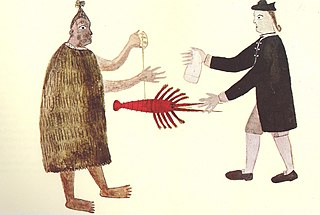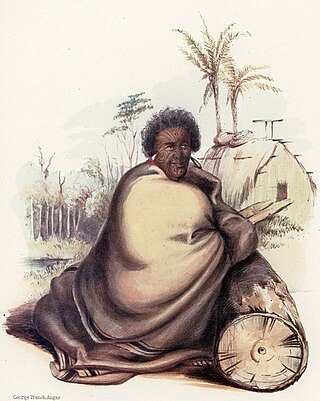Sir Bill Gallagher | |
|---|---|
 Gallagher in 2011 | |
| Born | William Murray Gallagher 22 January 1941 |
| Occupation | Businessman |
| Relatives | Bill Gallagher (father) |
Sir William Murray Gallagher KNZM MBE (born 22 January 1941) is a New Zealand businessman.
Sir Bill Gallagher | |
|---|---|
 Gallagher in 2011 | |
| Born | William Murray Gallagher 22 January 1941 |
| Occupation | Businessman |
| Relatives | Bill Gallagher (father) |
Sir William Murray Gallagher KNZM MBE (born 22 January 1941) is a New Zealand businessman.
Gallagher was born on 22 January 1941, the son of Bill Gallagher and Millie Gallagher (née Murray). [1] [2] [3] His father was an inventor, engineer and businessman who is best remembered for popularising the electric fence; he founded Gallagher Engineering Limited in Hamilton in 1963. [3]
The younger Bill Gallagher and his brother John took increasing roles in the business and marketing side of the family firm through the 1960s, with Bill leading the company's export push into Australia and becoming the chief executive in the mid-1970s. [2] [3] By 2010, the Gallagher Group was exporting to over 130 countries with revenue of $160 million, and had over 1000 employees, including 600 in New Zealand. Their product range had expanded to include high-powered electric fences, automatic gate openers, security access systems, and animal weighing devices. [2] [4]
Gallagher and his wife, Judi, have three children. [2]
In 2013, the Gallagher Group donated to Hamilton City a statue of John Fane Charles Hamilton, a British naval officer who was killed at the Battle of Gate Pā, for whom the city was named. [5] In 2017, Gallagher gave a speech in which he called the Treaty of Waitangi a "fraud", and said that non-Māori risked being stripped of their rights and becoming unable to visit New Zealand's beaches. [6] In 2018, the statue of Hamilton was defaced with red paint, and it was removed from public display in Civic Square by the Hamilton City Council in 2020 following a request from the local iwi, Waikato Tainui. [7] Gallagher subsequently circulated reports to city councillors detailing an alternative history of New Zealand in which Māori were not the first inhabitants of New Zealand, a theory that has been debunked by leading historians. [8]
In the 1987 Queen's Birthday Honours, Gallagher was appointed a Member of the Order of the British Empire, for services to export. [9] In 1990, he was awarded the New Zealand 1990 Commemoration Medal. [10] In the 1999 New Year Honours, Gallagher was made a Companion of the New Zealand Order of Merit, for services to business and export, [11] and he was promoted to Knight Companion of the New Zealand Order of Merit, for services to business, in the 2011 New Year Honours. [12] In 2004, he was inducted into the New Zealand Business Hall of Fame. [13]
In 2008, Gallagher and his brother John both received honorary doctorates from the University of Waikato. [14]

The Treaty of Waitangi, sometimes referred to as Te Tiriti, is a document of central importance to the history of New Zealand, its constitution, and its national mythos. It has played a major role in the treatment of the Māori people in New Zealand by successive governments and the wider population, something that has been especially prominent from the late 20th century. The treaty document is an agreement, not a treaty as recognised in international law, and has no independent legal status, being legally effective only to the extent it is recognised in various statutes. It was first signed on 6 February 1840 by Captain William Hobson as consul for the British Crown and by Māori chiefs from the North Island of New Zealand.

The University of Waikato, established in 1964, is a public research university located in Hamilton, New Zealand. An additional campus is located in Tauranga. The university performs research in numerous disciplines such as education, social sciences, and management and is an innovator in environmental science, marine and freshwater ecology, engineering and computer science. It offers degrees in health, engineering, computer science, management, Māori and Indigenous Studies, the arts, psychology, social sciences and education.

Waitangi Day, the national day of New Zealand, marks the anniversary of the initial signing—on 6 February 1840—of the Treaty of Waitangi. The Treaty of Waitangi was an agreement towards British sovereignty by representatives of the Crown and indigenous Māori chiefs, and so is regarded by many as the founding document of the nation.

Murray John Finlay Luxton was a New Zealand National Party politician, serving as a Member of Parliament from 1987 to 2002. From 2008 to 2015, he was the Chairman of DairyNZ, the organisation that represents all New Zealand dairy farmers. He was co-chair of the Waikato River Authority, a Crown/iwi co-governance organisation established through Treaty of Waitangi settlement legislation to clean up the Waikato River.

Pōtatau Te Wherowhero was a Māori warrior, leader of the Waikato iwi, the first Māori King and founder of the Te Wherowhero royal dynasty. He was first known just as Te Wherowhero and took the name Pōtatau after he became king in 1858. As disputes over land grew more severe Te Wherowhero found himself increasingly at odds with the Government and its policies.
Claims and settlements under the Treaty of Waitangi have been a significant feature of New Zealand politics since the Treaty of Waitangi Act 1975 and the Waitangi Tribunal that was established by that act to hear claims. Successive governments have increasingly provided formal legal and political opportunity for Māori to seek redress for what are seen as breaches by the Crown of guarantees set out in the Treaty of Waitangi. While it has resulted in putting to rest a number of significant longstanding grievances, the process has been subject to criticisms including those who believe that the redress is insufficient to compensate for Māori losses. The settlements are typically seen as part of a broader Māori Renaissance.

Moana Jackson was a New Zealand lawyer specialising in constitutional law, the Treaty of Waitangi and international indigenous issues. He was an advocate and activist for Māori rights, arguing that the New Zealand criminal justice system was discriminatory and leading work on constitutional reforms. In 1987 he co-founded Ngā Kaiwhakamarama i Ngā Ture. He also supported the rights of indigenous people internationally – for example, through leading the working group that drafted the United Nations Declaration on the Rights of Indigenous Peoples and sitting as a judge on the International Tribunal of Indigenous Rights in the 1990s.

Dame Claudia Josepha Orange is a New Zealand historian best known for her 1987 book The Treaty of Waitangi, which won 'Book of the Year' at the Goodman Fielder Wattie Book Award in 1988.

The New Zealand land confiscations took place during the 1860s to punish the Kīngitanga movement for attempting to set up an alternative, Māori, form of government that forbade the selling of land to European settlers. The confiscation law targeted Kīngitanga Māori against whom the government had waged war to restore the rule of British law. More than 1,200,000 hectares or 4.4 percent of land were confiscated, mainly in Waikato, Taranaki and the Bay of Plenty, but also in South Auckland, Hauraki, Te Urewera, Hawke's Bay and the East Coast.

Sir Edward Taihakurei Durie is a New Zealand jurist who served on the High Court of New Zealand between 1998 and 2004. He was the first Māori appointed as a judge of a New Zealand court.
Alfred William Gallagher was a New Zealand inventor, manufacturing engineer and businessman. He is notable for popularising the electric fence.

Linda Tuhiwai Te Rina Smith, previously a professor of indigenous education at the University of Waikato in Hamilton, New Zealand, is now Distinguished Professor at Te Whare Wānanga o Awanuiārangi. Smith's academic contribution is about decolonising knowledge and systems. The Royal Society Te Apārangi describes Smith’s influence on education as creating "intellectual spaces for students and researchers to embrace their identities and transcend dominant narratives".

Sir William Te Rangiua "Pou" Temara is a New Zealand academic. He is professor of Māori language and tikanga Māori (practices) at Waikato University and a cultural authority on whaikōrero (oratory), whakapapa (genealogy) and karakia. Prior to working at Waikato, he taught at Victoria University of Wellington, where he also studied, and at Te Whare Wānanga o Awanuiārangi.

Huirangi Eruera Waikerepuru was a New Zealand Māori language activist and trade unionist of Taranaki and Ngāpuhi descent. He was active in the foundation and governance of Māori language radio and television.

A bronze statue of Captain John Fane Charles Hamilton was installed for seven years, in Hamilton, New Zealand, from in 2013 until removal in June 2020.

John Fane Charles Hamilton was a British naval officer, after whom the city of Hamilton, New Zealand, is named. A statue of him stood in the centre of Hamilton from 2013 to 2020.
The 1987 Queen's Birthday Honours in New Zealand, celebrating the official birthday of Elizabeth II, were appointments made by the Queen in her right as Queen of New Zealand, on the advice of the New Zealand government, to various orders and honours to reward and highlight good works by New Zealanders. They were announced on 13 June 1987.
Tureiti Haromi Moxon, Lady Moxon is a New Zealand Māori health leader and campaigner.

Vincent Michael O’Malley FRHistS is a New Zealand historian whose work focuses on the history of how relationships between Māori, European settlers (Pākehā) and colonial governments shapes the development of New Zealand as a nation. In his publications, and as a presenter and media commentator, O'Malley takes public positions on the teaching of history in New Zealand schools, the importance of understanding the impact of the New Zealand Wars, interractions between Māori agency and Crown responses during the colonisation of the country and the role of the Waitangi Tribunal. O'Malley has received multiple research grants, won several literary awards and is involved in a wide range of professional associations. He is Research Director at HistoryWorks, a company he co-founded in 2004.

Tama William Potaka is a New Zealand politician and Member of Parliament in the House of Representatives representing the Hamilton West electorate. He is a member of the National Party and was chief executive of Ngāi Tai ki Tāmaki before entering Parliament.